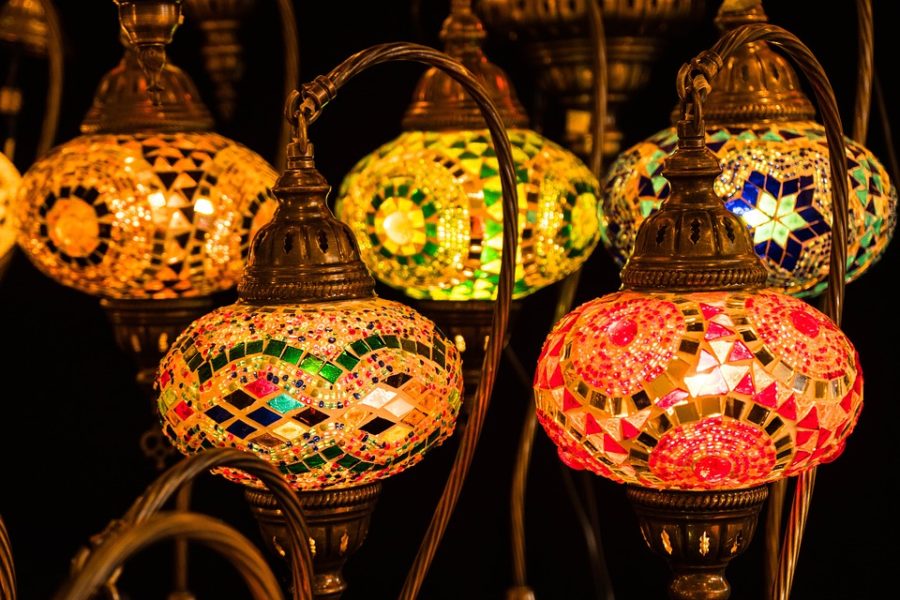No, Not Even Water: Ramadan, A Month of Self-Control
Many families decorate their homes for the month of Ramadan. The most popular decorations are lanterns, string lights, crescents and countdowns.
Sunset on May 15 marked the beginning of the Muslim holy month of Ramadan, signaling a month of fasting for Muslims worldwide.
Following the lunar calendar, the Islamic calendar has 12 months, Ramadan being the ninth. In this holy month, Muslims fast, refraining from eating and drinking from dawn to sunset. Fasting is mandatory for all Muslims once they have reached puberty as long as they are healthy and in a proper condition to fast.
Many Muslims will wake up before dawn to eat a meal called “Suhur” before their day of fasting begins. At sunset they break their fast, generally by eating a date, followed by a meal called “Iftar,” which is Arabic for “break fast,” and Muslims are allowed to eat until dawn of the following day.
On June 15, Muslims will celebrate the end of their month of fasting with a holiday called “Eid al-Fitr” where families gather, pray and engage in festivities.
During the month itself, Muslims engage in several traditions that vary according to cultures and families. Families and friends will generally gather to eat Iftar together. After Iftar, it is common to go to the Mosque and pray a prayer called “Taraweeh.” Many Muslims attempt to read more Quran, pray additional prayers and learn more about Islam to strengthen their understanding of the religion.
Despite the lack of focus it may cause, students who are in school during Ramadan are still required to fast from dawn to sunset on a daily basis.
“The first day of fasting is kind of difficult, but by the second day, it becomes much easier because you get used to it,” sophomore Zaid Bahrani said. “What affects me the most during the day is the lack of energy. Having little energy while learning a new lesson or doing classwork can get difficult, but overall the spiritual and mental effect fasting has on you is worth it.”
Although at times it may be difficult or tiring, as Muslims like Bahrani have said, there are many blessings and spiritual rewards for Muslims who choose to fast.
According to the Islamic prophet Muhammad, “Whoever fasts during the month of Ramadan with faith while seeking its reward from Allah [God] will have his past sins forgiven.”
The significance of fasting is to teach Muslims self-control and to test their faith in God. Many take this month as an opportunity to ask for forgiveness and become closer to God.
Your donation will support the student journalists of Portola High School. Your contribution will allow us to purchase equipment and cover our annual website hosting costs.

Maryam Shama is your 2018-19 Co-Editor-in-Chief! Having been Opinion Editor in the previous year, she is excited to contribute to the production in a different...




